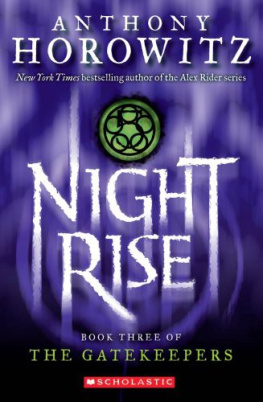The Democratic Imagination
The Democratic Imagination
Dialogues on the Work of Irving Louis Horowitz
Ray C. Rist,
editor
With a new foreword by Mary E. Curtis
First published 1994 by Transaction Publishers
Published 2017 by Routledge
2 Park Square, Milton Park, Abingdon, Oxon OX14 4RN
711 Third Avenue, New York, NY 10017, USA
Routledge is an imprint of the Taylor & Francis Group, an informa business
All rights reserved. No part of this book may be reprinted or reproduced or utilised in any form or by any electronic, mechanical, or other means, now known or hereafter invented, including photocopying and recording, or in any information storage or retrieval system, without permission in writing from the publishers.
Notice:
Product or corporate names may be trademarks or registered trademarks, and are used only for identification and explanation without intent to infringe.
Library of Congress Catalog Number: 94-4770
Library of Congress Cataloging-in-Publication Data
The democratic imagination : dialogues on the work of Irving Louis
Horowitz / edited by Ray C. Rist.
p. cm.
Includes bibliographical references and index.
ISBN 1-56000-174-7
1. Horowitz, Irving Louis. 2. Sociology. I. Rist, Ray C.
HM22.U6H674 1994
301'.902dc20 94-4770
[B] CIP
ISBN 13: 978-1-4128-5607-2 (pbk)
ISBN 13: 978-1-56000-174-4 (hbk)
Contents
Mary E. Curtis
Ray C. Rist
James E. Katz
Howard G. Schneiderman
Jeanne H. Guillemin
Abraham Edel
Aaron Wildavsky
Peter F. Drucker
Walter Laqueur
Martha Crenshaw
Anselm Strauss
Howard S. Becker
William A. Donohue
John D. Martz
Simon M. Fass
Tunde Olatunde Odetola
Byoung-Lo Philo Kim
Ernesto F. Betancourt
Carmelo Mesa-Lago
Jaime Suchlicki
William B. Helmreich
Michael Curtis
Raymond Horricks
Arthur Asa Berger
R. Serge Denisoff with George Plasketes
Mary E. Curtis
Beth Luey
Nathaniel J. Pallone
William N. Dunn
Deborah A. Stanley
Irving Louis Horowitz
The Democratic Imagination is designed as a volume honoring the work of Irving Louis Horowitz. Festschriften have a long tradition. Most such books are written at the twilight of the honorees career. Too often, the contributions are not written specifically for the volume; even when they are, authors are rarely given much guidance as to what they should address. As a result, as a genre, such books have a poor reputation; they often seem at best eclectic and rarely hang together as a coherent book. Perhaps for that reason, most are not received particularly well.
This book has none of those attributes. It was published late in Irvings career, about the time of his 65th birthday, but he remained extraordinarily productive for nearly twenty years thereafter, having published more than twelve books and countless journal articles. His last book was published the month he passed away. Moreover, The Democratic Imagination is tightly organized, reflecting the experienced oversight of its editor, Ray C. Rist. Obviously, the volume was well planned, and all of the contributions were prepared specifically for The Democratic Imagination. Each author addresses a particular area in which Irving worked and in which they themselves are knowledgeable, ranging from social theory, to politics, to development, to Cuba, to Jewish studies, to publishing. Irving always felt that a festschrift should take the person being honored seriously, and for him that meant critically. For that reason, he also believed the honoree whose work was being discussed should always have the right to respond. So here Irving has the last word, in his Critical Responses to Friendly Critics.
Looking over this volume, Im impressed by how well it stands up. The contributors range from mentors, to peers, to former students, all united here as Irvings colleagues. Twenty years later, a third of those who contributed have themselves passed away; others are mostly senior figures in their fields of enterprise and remain productive. Almost all are Transaction authors, not because that was a requirement. Transaction has always published the best and the brightest people who have been central to social science in the postwar era.
I expect Irving would be pleased that this volume is now appearing in paperback and will now be available as an eBook. Despite many suggestions from others, he never produced an autobiography, except for an award-winning memoir, Daydreams and Nightmares. Consequently, those interested in this remarkable man and his work must find their own pathway to understanding, and this volume is a good start. Lets hope new generations who discover Irving will dip into this volume for an overview of the monumental significance of the work of this courageous social scientist.
Mary E. Curtis
November 2015
Dear Irving:
While the format for this Introduction may be somewhat unorthodox, I have taken on the prerogative as editor to frame these opening remarks in a way different from those of the twenty-seven papers to follow. The greeting is personal. It is meant to be. I have chosen this means of introducing the book for the reason that this book is for you as much as it is about you.
In preparing this festschrift, all of us involved have sought formally to recognize your many academic and literary accomplishments. But these efforts are no less to acknowledge the influence you have had on us as individuals. The papers to follow rightly analyze and summarize the intellectual contributions you have made over the past forty years. That your contributions are profound and far-reaching are attested to time and again in the pages to follow by authors from five continents. This is as it should be, for your views are global and your discourse has never been restricted to national boundaries. That you are one of the giants of modern-day social science is readily and willingly granted by each of us. We know intellectually the size of your shadow and your shoulders.
But it is important also to stress that the creation of this volume has happened because each of us also knows you in other rolesmost notably as friend, colleague, former professor, publisher and editor, and adversary on the basketball courtand, in one instance, as your spouse. This book represents a personal as well as an intellectual statement. It comes from our hearts as well as our heads. We have come together to acknowledge the impacts you have made on our lives no less than those you have made on our thinking. And it does not take an overly careful reading between the lines of the papers to see that your influence has been real, sustained, and enduring. Our contributions are the statements of those who believe themselves to be a part of a very special community.












